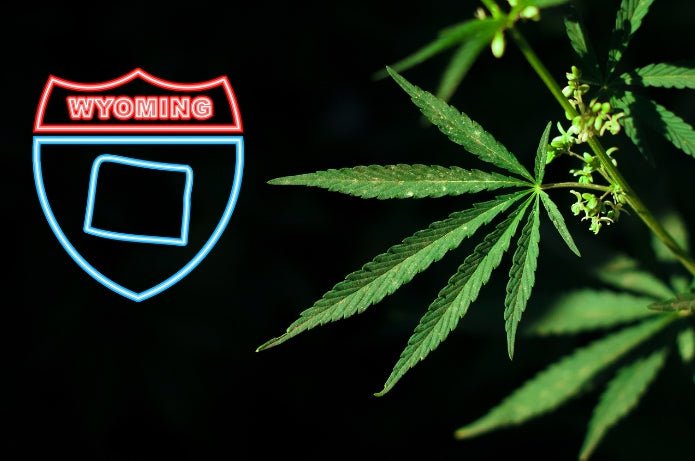The federal judge’s decision to dismiss a lawsuit brought by hemp industry stakeholders could set a catastrophic precedent for other states considering a ban on all hemp-derived intoxicating derivatives.

As the tidal wave of new state laws and regulations banning the sale and consumption of intoxicating hemp derivatives (IHDs) continues to rise, the battle over the survival of the hemp industry in America may finally be coming to a head.
Last week, Wyoming became the 18th state to pass and enact legislation prohibiting IHDs. As more and more states begin to enact similar measures, various lawsuits challenging the constitutionality of these anti-hemp laws and regulations are pressing the question of whether these state statutes and rules are legal.
At the heart of the controversy is the much-maligned and mischaracterized delta-8 THC cannabinoid. Often referred to in the media as "diet weed," delta-8 is just one of almost 100 cannabinoids produced by the hemp and cannabis plants.
When Congress legalized hemp and its derivative products with the passage of the 2018 Farm Bill, enterprising and creative hemp entrepreneurs began developing, manufacturing, and selling edible products containing various perfectly legal IHD products.
Unfortunately, as is the case in many new and burgeoning industries, a few bad actors began injecting the market with less than reputable and safe items, which led, in a handful of documented cases, to some medical issues for a few consumers.
These incidents, when publicized by media outlets and then further amplified by Big Cannabis interests intent on crushing the hemp sector, became the basis for the justification of imposing these highly dubious bans on IHDs.
One of those states attempting to eradicate all IHD products is New York. Unable to procure the desired prohibition statutes from the State Assembly, regulatory bodies like the New York Cannabis Control Board (CCB) and the Office of Cannabis Management (OCM) have tried to ban the manufacture and sale of items containing IHDs by issuing highly restrictive new guidelines for governing hemp in the state.
Last November, Washington state-based Cycling Frog successfully sued the state regarding a set of revised hemp guidelines released by officials in July 2023. According to Syracuse.com's Cannabis Insider, a New York judge invalidated those rules, saying that the state failed to prove that the hemp items in question "misled or harmed" consumers.
As a result of that case, state officials issued a new set of highly restrictive rules on November 17, which imposed a mandatory 15-to-1 ratio of CBD to THC in hemp-based products, drastically limiting "the products available for market."
Undaunted by the state's almost vindictive need to abolish New York's hemp industry, ten state-licensed hemp companies filed suit against the New York Office of Cannabis Management (OCM) in the federal Southern District of New York on March 1.
Citing the enforcement of newly revised hemp regulations this past November, as well as several raids designed to crack on the state's illegal cannabis black market, the companies claimed that the actions of the OCM and state law enforcement had an "immediate and catastrophic effect," costing them "millions of dollars" in the process.
In a shocking and unexpected development, according to multiple media outlets, Judge Mary Kay Vyskocil abruptly dismissed the case in the U.S. District Court for the Southern District of New York (SDNY) yesterday on procedural grounds, effectively enveloping the market for hemp-based IHD products in the state's broader crackdown on New York's illicit cannabis trade.
The plaintiffs were obviously hoping to receive a similar ruling to the one achieved by Cycling Frog. However, despite the setback, the judge's dismissal does not mean the case is dead. Because Vyskocil based her ruling exclusively on procedural matters, the plaintiffs may re-file the suit in the SDNY with specific modifications.
Regardless of what ultimately happens in the New York case, industry experts and cannabis industry attorneys believe that further legal debate on the issue in federal court will eventually have profound and far-reaching implications for legal cannabis and hemp market sectors nationwide.
If the courts side with the plaintiffs in this and other currently pending cases (Texas, Arkansas, South Carolina), states' abilities to regulate IHDs could be severely limited. However, a ruling in favor of regulators could substantially strengthen all states' authority to restrict or outright ban hemp-derived cannabinoids, the 2018 Farm Bill notwithstanding.
In the end, this case and all those like it are just chess pieces in a much larger game being manipulated and exploited by the deep-pocketed and morally questionable barons of the Big Cannabis lobby.
Hell-bent on devouring the burgeoning industry to take all potential business and profits from the hemp and cannabis plants for themselves, these shadowy and ethically empty operators will not stop until both sectors are under the control of their consortium of money, power, and greed.








































